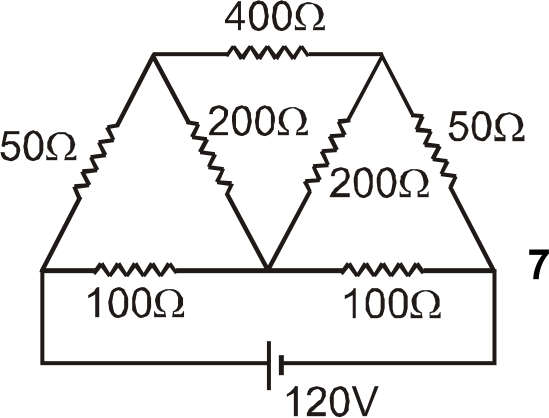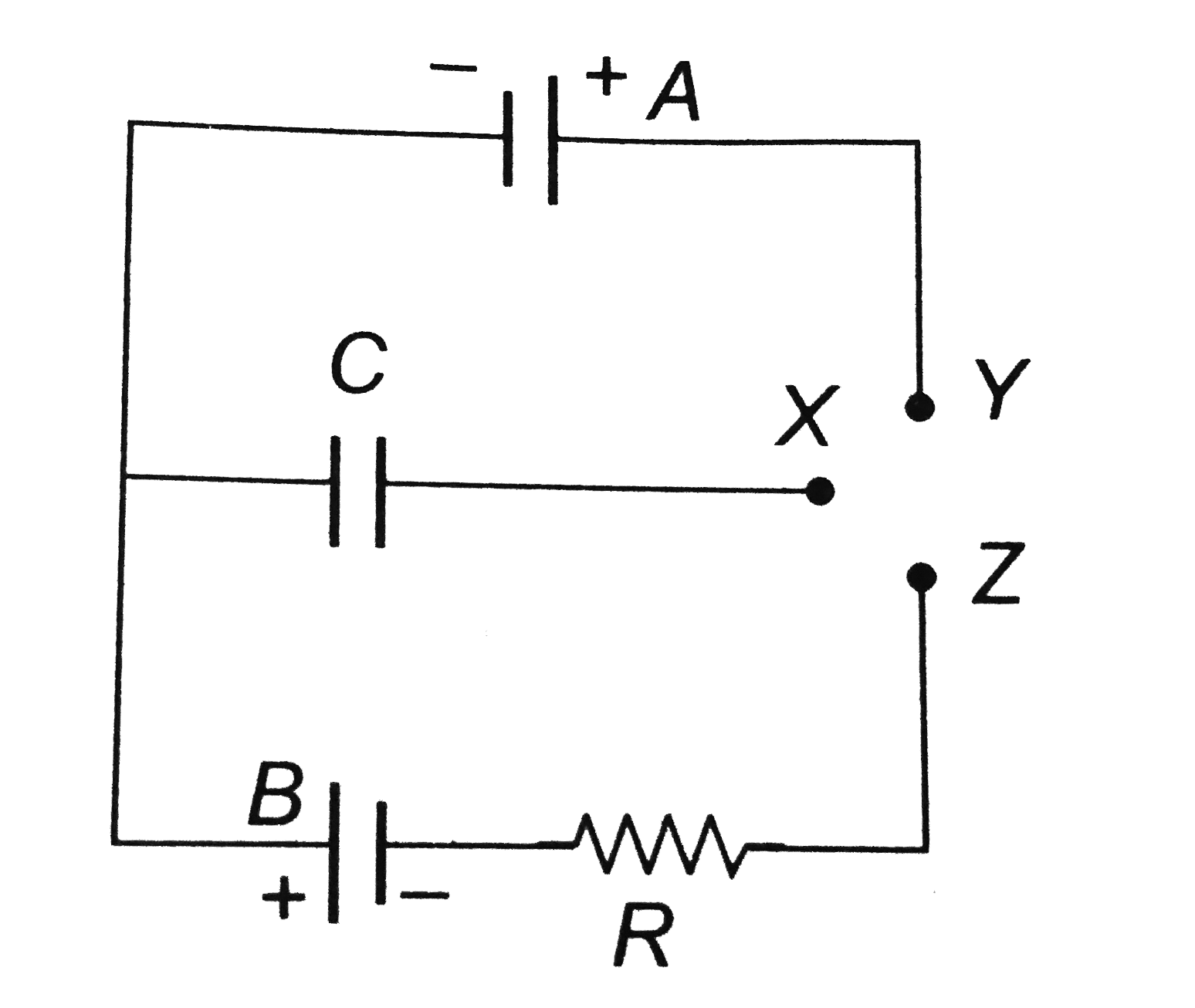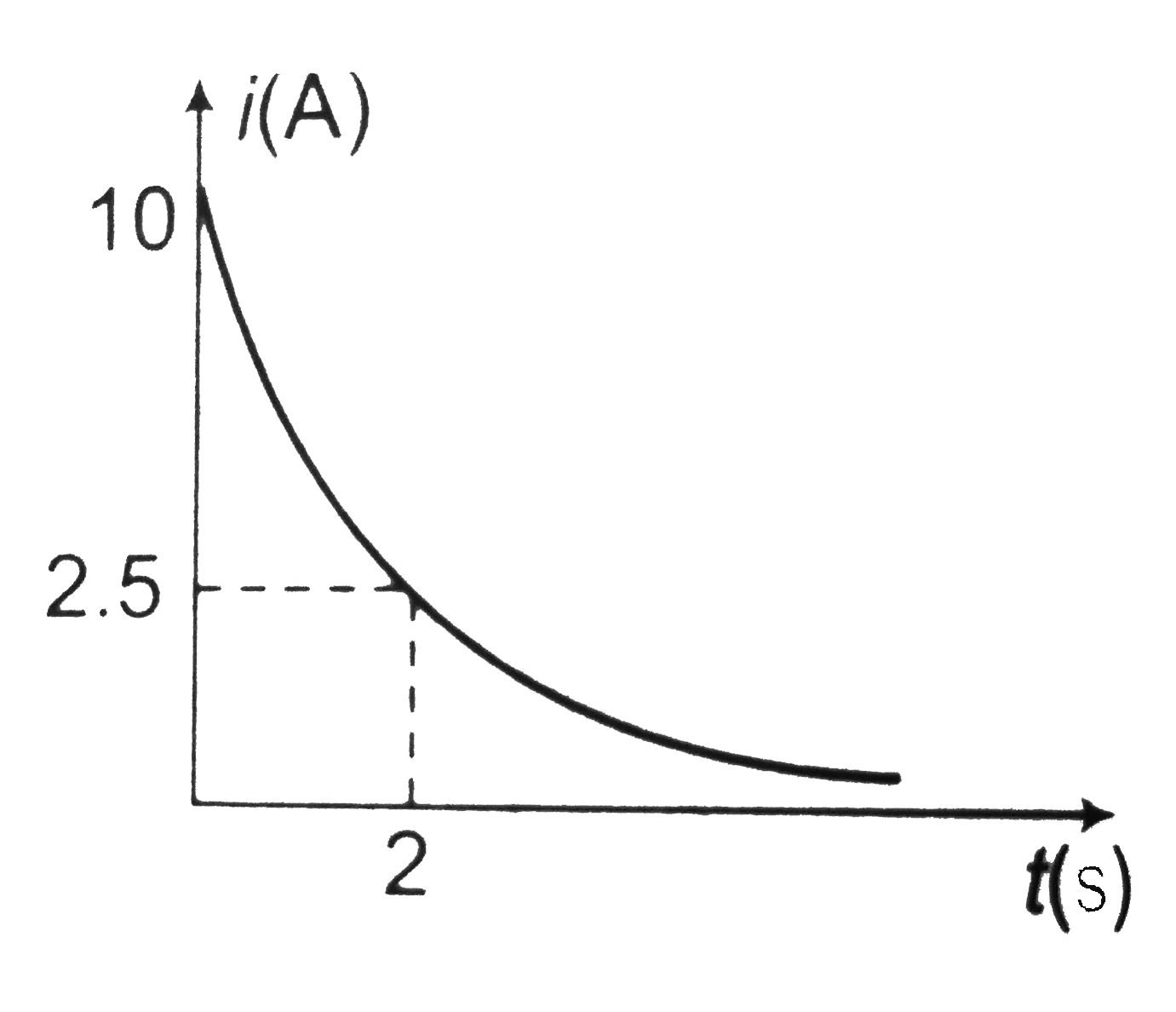A 4μF capacitor is charged to 400 volts and then its plates are joined through a resistor of resistance 1KΩ. The heat produced in the resistor is
0.16J
1.28J
0.64J
0.32J
The correct Answer is:D
To solve the problem of finding the heat produced in a resistor when a charged capacitor discharges through it, we can follow these steps:
1. Identify the given values:
- Capacitance (C) = 4 µF = 4×10−6 F
- Voltage (V) = 400 V
- Resistance (R) = 1 kΩ = 1000 Ω
2. Calculate the energy stored in the capacitor:
The energy (U) stored in a capacitor can be calculated using the formula:
U=12CV2
Plugging in the values:
U=12×(4×10−6F)×(400V)2
3. Perform the calculations:
First, calculate V2:
V2=4002=160000V2
Now substitute this back into the energy formula:
U=12×(4×10−6)×160000
U=12×0.64J=0.32J
4. Understanding the heat produced:
When the capacitor discharges through the resistor, all the stored energy is converted into heat. Therefore, the heat produced (Q) in the resistor is equal to the energy stored in the capacitor:
Q=U=0.32J
Final Answer:
The heat produced in the resistor is 0.32 Joules.
---
- Capacitance (C) = 4 µF = 4×10−6 F
- Voltage (V) = 400 V
- Resistance (R) = 1 kΩ = 1000 Ω
The energy (U) stored in a capacitor can be calculated using the formula:
U=12CV2
Plugging in the values:
U=12×(4×10−6F)×(400V)2
First, calculate V2:
V2=4002=160000V2
Now substitute this back into the energy formula:
U=12×(4×10−6)×160000
U=12×0.64J=0.32J
When the capacitor discharges through the resistor, all the stored energy is converted into heat. Therefore, the heat produced (Q) in the resistor is equal to the energy stored in the capacitor:
Q=U=0.32J
The heat produced in the resistor is 0.32 Joules.
Similar Questions
A capacitor having capacity of 2μF is charged to 200V and then the plates of the capacitor are connected to a resistance wire. The heat produced in joule will be
View SolutionA capacitor of capacitance C has charge Q. it is connected to an identical capacitor through a resistance. The heat produced in the resistance is
View SolutionThe value of escape speed from the surface of earth is
View SolutionAn alternating voltage V=140 sin 50 t is applied to a resistor of resistance 10 Ω. This voltage produces △H heat in the resistor in time △t. To produce the same heat in the same time, rquired DC current is
View SolutionAn alternating voltage V=140 sin 50 t is applied to a resistor of resistance 10 Ω. This voltage produces △H heat in the resistor in time △t. To produce the same heat in the same time, rquired DC current is
View SolutionElectric current through 400Ω resistor is :

View SolutionThe plates of a capacitor of capacitance 10(μ)F,charged to 60(μ)C,are joined together by a wire of resistance 10(Ω)at t=0.Find the charge on the capacitor in the circuit at (a)t=0,(b)t=30(mu)s,(c )t=120(mu)s and (d)t=1.0ms.
View SolutionIn the circuit shown the cells are ideal and of equal emfs, the capacitance of the capacitor is C and the resistance of the resistor is R. X is first joined to Yand then to Z. After a long time, the total heat produced in the resistor will be

View SolutionBy evaluating ∫i2Rdt,show that when a capacitor is charged by connecting it to a battery through a resistor,the energy dissipated as heat equals the energy stored in the capacitor.
View SolutionThe figure shows a graph of the current in a charging circuit of a capacitor through a resistor of resistance 10Ω.

View Solution
